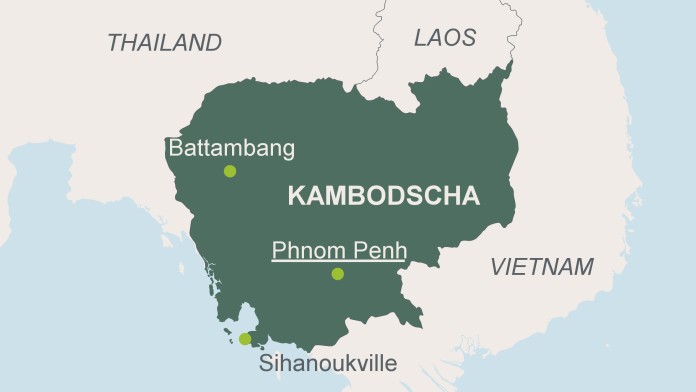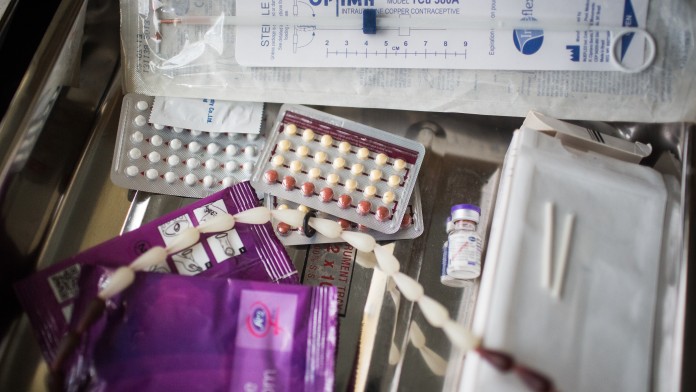
As of: 08/2022
H-EQIP supports the overall reforms in the health sector to improve social health protection for the poor and vulnerable groups through expanding health care coverage, strengthening quality and affordability of health care services, and creating sustainable government institutions for health care management.

Cambodia remains one of the poorest countries in the Southeast Asia region. Despite dramatic improvements in maternal and child health over the past decade, inequities persist across health outcomes by socioeconomic status, geographical areas, and between urban and rural populations. These are particularly devastating for the poor, as out-of-pocket payments account for 60% of payments for health services and constitute an important source of debt and impoverishment. Approximately 6.3% of the population endure catastrophic spending and 3.1% incur debt to pay for healthcare. The impact is even greater for the elderly and disabled, 8.6% and 13.4% of whom incur catastrophic spending, respectively.
The quality of and access to health services in Cambodia remain a challenge. Gaps persist in infrastructure, skills and competencies of the health workforce, as well as the monitoring of health sector performance and evidence-based decision-making. Through a multi-donor trust fund administered by the World Bank, KfW, together with DFAT (Australia) and KOICA (Korea) supports the Ministry of Health (MoH) with financial and technical contributions building on the innovations and achievements supported in the Second Health Sector Support Program 2008-2016 (HSSP2), particularly the Health Equity Funds (HEFs) and Service Delivery Grants (SDGs). H-EQIP improves the resourcing and management of these innovations in order to ensure institutional and financial sustainability, following the vision of the Royal Government of Cambodia’s (RGC) Third Health Strategic Plan (HSP3).
The project aims to improve access to quality health services and protection against impoverishment due to the cost of health services for targeted population groups. The three main components of the project are:
This component expands the Service Delivery Grants (SDGs) introduced under HSSP2—block grants given to facilities, granting a degree of autonomy in making optimal use of human and financial resources to deliver services. H-EQIP transforms these grants into a mechanism for providing performance-based financing to different levels of the Cambodian primary and secondary health system. Grants given to health centers, hospitals, as well as provincial health departments strengthen management, incentivize improvements to quality of care, improve performance in capacity-building activities, and promote utilization of services.
This component continues to support and expand the HEF system, co-financing with the government to cover the costs of health services for the poor.
Building on the success of the system, H-EQIP continues to improve the quality of services, increase utilization by the poor, and ensure sustainability by transferring implementation and payment certification responsibility to RGC. This will be achieved through a newly created independent government agency, or Payment Certification Agency (PCA).
The HEF system is designed to evolve with changes in government policy on beneficiaries, benefit packages, and social health protection measures, also integrating successful standalone initiatives, including KfW’s vouchers for reproductive health care and vulnerable groups.
This component supports a program of activities designed to (1) improve supply-side readiness and strengthen the institutions that implement project activities (2) improve health infrastructure and (3) support project management, monitoring and evaluation. This includes the implementation of comprehensive pre- and in-service training programs for health workers, equipping health facilities to meet minimum standards for obstetric and neonatal care, enhanced health service quality monitoring, improved timeliness of SDG and HEF payments, and establishment of sustainable health service purchasing arrangements. Financing for these activities is based on results tracked by annual indicators (disbursement linked indicators), aimed at measuring performance against health system strengthening actions.
H-EQIP contributes to RGC’s broader development agenda, as defined by the Health Strategic Plan 2016-2020 (HSP-3), the National Strategic Development Plan (2014-2018) and the Rectangular Strategy 3 with is focus on strengthening quality and affordability of health services, as well as expanding coverage and increasing equitable access to effective and efficient health systems.
In line with the Sustainable Development Goals, the project also accelerates progress toward Universal Health Coverage (UHC), a goal Cambodia strives to achieve by 2030, whereby all people receive the health care they need without suffering financial hardship.
Four project development objective indicators include:
The project contributes to the achievement of these following United Nations Sustainable Development Goals:
KfW Group
KfW Development Bank
KfW Office Phnom Penh